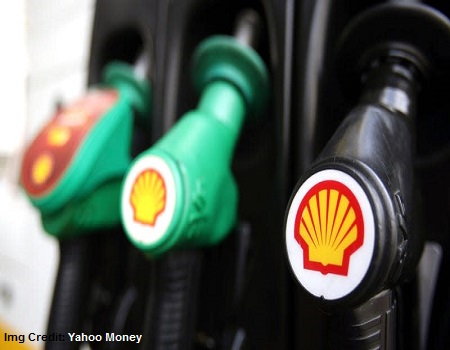Shell CEO Calls It ‘Irresponsible’ To Cut Oil Production Now

LONDON (AP) — The head of global energy giant Shell says it would be “irresponsible” to cut oil and gas production at a time when the world economy is still dependent on fossil fuels. In an interview with the BBC released 6 July, Shell CEO Wael Sawan also refused to rule out moving the company’s headquarters and stock market listing from Britain to the United States. “The reality is, the energy system of 7 July continues to desperately need oil and gas,” Sawan said. “And before we are able to let go of that, they need to make sure that they have developed the energy systems of the future — and they are not yet, collectively, moving at the pace (required for) that to happen.”
The comments run counter to recommendations from climate scientists and UN Secretary-General Antonio Guterres, who have called on the fossil fuel industry to lead, not block, the transition to renewable energy. Burning fossil fuels is the largest source of carbon dioxide emissions blamed for global warming. Even Sultan al-Jaber, head of Abu Dhabi National Oil Co., one of the world's largest oil producers, and chairman of this year's UN climate talks, called on the oil and gas industry to achieve net zero greenhouse gas emissions, or by 2050. Guterres said meeting the UN goal of limiting global temperature rise to 1.5 degrees Celsius above pre-industrial times is still possible, but only if countries step up their efforts to reduce carbon emissions. "Investing in new fossil fuel infrastructure is moral and economic madness," Guterres said in April. "Such investments will soon become rubbish - a blemish on the landscape and rubbish on investment portfolios." Sawan said he disagreed with that opinion. "I think it would be dangerous and irresponsible to stop oil and gas production so that the cost of living - as we just saw last year - goes up again," he told the BBC.
When energy prices rose last year after Russia invaded Ukraine, rich countries bought much of the world's LNG and took it away from places like Bangladesh and Pakistan, where children were forced to study by candlelight, he said. Sawan started as CEO of Shell in January. Under his predecessor, Ben van Beurden, the company set a goal of eliminating net carbon dioxide emissions from both its operations and the products it sells by 2050. Sawan also took aim at the UK government's changing tax and energy policies, saying it threatens to make Britain a less attractive place to invest.